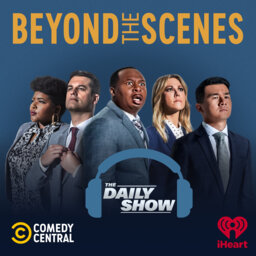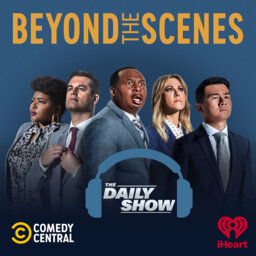How the NCAA’s Rules Allow College Athletes to Make Money (feat. Sabrina Ionescu)
The NCAA has introduced name, image, and likeness deals that allow college athletes to accept payment from sponsors and brands -- including anything from endorsement deals to TikTok sponsorships. In this episode, WNBA star Sabrina Ionescu sits down with Roy Wood Jr. to discuss what this means for college athletes, the future of player compensation, and how she is involved with navigating deals for students at her alma mater, the University of Oregon. Roy also sits with Daily Show correspondent, Michael Kosta, to discuss the potential drawbacks that may come with paying college athletes.
Originally aired: March 15, 2022
 Beyond the Scenes from The Daily Show
Beyond the Scenes from The Daily Show


